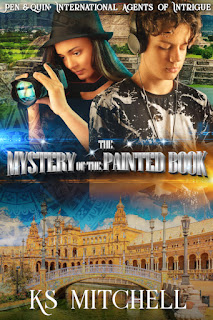How do you publish to so many eBook sites? How did you make your
book into a paperback? How do you design a book cover? (I've answered the book cover question in more detail on a previous blog post) I've been asked this by so many people, I don't know who to attribute the question to :)
There’s basically two ways to get your book fully distributed. You
can either go to each and every eBook website and download your document file
to their library, or just download the document to Smashwords.com. I’m not
getting paid by them to write this, but seriously Smashwords is by far the most
comprehensive approach. That’s not to say it’s easy. The document must be
prepared per their standards… stripped completely clean of any possible
corruption. Fortunately, a step-by-step book is free at their website to ensure
you can do it properly. Smashwords then takes your perfectly formatted Microsoft
Word 97-2003 ‘doc’ (not docx) and formats it for all e-reader devices (each
device is different). Believe it or not this is a free service up front. As the
sales come in, then they get a portion of the profit. I tried a Fiverr
formatter but the guy couldn’t do it right and I ended up doing it myself. Don’t
be suckered into their re-assurances that they can do it. Make sure they can,
and tell them you won’t pay them if Smashwords doesn’t place you in the premium
catalogue.
I’m going to say it again because it’s that important. Follow the
Smashwords guidelines exactly. It will probably take you a couple of days. BUT,
if you do it right, you will be in their premium catalogue with maximum
distribution.
There is only one place who doesn’t accept Smashwords. Can you
guess who? Yep, Amazon! When you complete your work at Smashwords, you have to
go over to Amazon and follow their instructions. Another couple of days to
figure it out. But while you are at Amazon, check out the paperback option at
KDP. You have to go to “Author Central” to publish paperback. The great news is
they also don’t charge you for the process (which is good because you’re the
one doing all the work). They will pay you a percentage. You can choose your
price and it calculates your royalty. In the old days, when you had a book made
into paperback, you had to purchase cases of books and pile them up in the
spare room. Now it’s print on demand. When someone buys your book on Amazon,
KDP prints it and then ships it directly to the reader.
Now let’s back up to the question of how to make a book cover.
This actually needs to be done before you publish on any site. The easiest way
is to go to Fiverr and choose from the hundreds of designers. It’s super cheap
(less than $50 usually). At that point bundle your needs for eBook cover, paperback
cover, and audio book cover. When you get your cover back you can then publish
at Smashwords, Amazon eBook and Amazon paperback.
In my next post I’ll discuss how I got an audio book made…
















